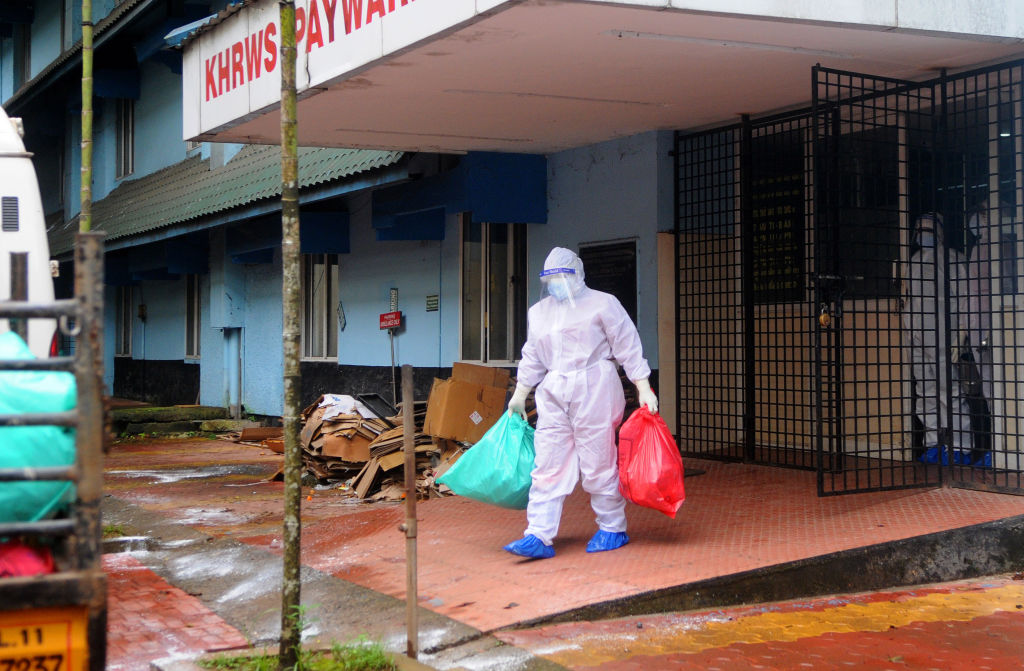Deadly Nipah virus kills boy in India, prompts worries over outbreak
A 12-year-old boy died from the virus in Kerala, India.

Get the world’s most fascinating discoveries delivered straight to your inbox.
You are now subscribed
Your newsletter sign-up was successful
Want to add more newsletters?

Delivered Daily
Daily Newsletter
Sign up for the latest discoveries, groundbreaking research and fascinating breakthroughs that impact you and the wider world direct to your inbox.

Once a week
Life's Little Mysteries
Feed your curiosity with an exclusive mystery every week, solved with science and delivered direct to your inbox before it's seen anywhere else.

Once a week
How It Works
Sign up to our free science & technology newsletter for your weekly fix of fascinating articles, quick quizzes, amazing images, and more

Delivered daily
Space.com Newsletter
Breaking space news, the latest updates on rocket launches, skywatching events and more!

Once a month
Watch This Space
Sign up to our monthly entertainment newsletter to keep up with all our coverage of the latest sci-fi and space movies, tv shows, games and books.

Once a week
Night Sky This Week
Discover this week's must-see night sky events, moon phases, and stunning astrophotos. Sign up for our skywatching newsletter and explore the universe with us!
Join the club
Get full access to premium articles, exclusive features and a growing list of member rewards.
Officials in southern India are working to stem a potential outbreak of the deadly Nipah virus after a boy died from the rare virus last week, according to news reports.
The 12-year-old boy was admitted to a hospital in Kozhikode, a city in the Indian state of Kerala, with symptoms of fever and brain inflammation, according to NPR. He was diagnosed with Nipah virus infection and died on Sept. 5.
Following the death, officials rushed to identify and isolate people who had come into close contact with the boy. By Sept. 6, officials had identified 188 contacts, 20 of whom were considered close contacts and were placed under quarantine or were being monitored at a hospital, according to CBS News. On Sept. 7, eight of the close contacts tested negative for the virus.
However, at least two healthcare workers who had contact with the boy started to show symptoms of the viral infection and were hospitalized while awaiting test results to confirm an infection, CBS News reported. Officials also sealed off an area within a 2-mile (3.2 kilometers) radius of the boy's home to investigate the outbreak.
Nipah virus is naturally found in fruit bats of the genus Pteropus, though it can jump to other animals, including humans, according to the Centers for Disease Control and Prevention (CDC). The virus can cause swelling of the brain known as encephalitis, and symptoms can include fever and headache, followed by drowsiness, disorientation and confusion. People who are infected with the virus may fall into a coma within 48 hours of showing symptoms, according to the CDC.
Related: The deadliest viruses in history
The virus is highly lethal, with a fatality rate up to 75%, according to the World Health Organization. That's much higher than the fatality rate for COVID-19, which has been estimated to be around 2% overall, using data on cases and deaths since the beginning of the pandemic. But Nipah virus is much less contagious than the coronavirus causing COVID-19; for example, the coronavirus delta variant is estimated to have a basic reproduction number, or R0 (pronounced R naught), of around 7, which means that each infected person spreads the virus to an average of seven other people, according to NPR. In contrast, the R0 for Nipah virus is estimated to be around 0.5, according to the Johns Hopkins Center for Health Security.
Get the world’s most fascinating discoveries delivered straight to your inbox.
Nipah virus was first discovered in 1999, when it caused an outbreak in Malaysia and Singapore linked to pig farms that killed more than 100 people, according to the CDC. Since then, the virus has mainly caused outbreaks in Bangladesh and India.
Kerala previously experienced an outbreak of Nipah virus in 2018, which killed more than a dozen people, according to NPR. The current outbreak comes as Kerala is also dealing with a high rate of COVID-19 cases — in recent weeks, the state has reported the highest number of new COVID-19 cases per day out of all states in India, NPR reported.
Originally published on Live Science.

Rachael is a Live Science contributor, and was a former channel editor and senior writer for Live Science between 2010 and 2022. She has a master's degree in journalism from New York University's Science, Health and Environmental Reporting Program. She also holds a B.S. in molecular biology and an M.S. in biology from the University of California, San Diego. Her work has appeared in Scienceline, The Washington Post and Scientific American.
 Live Science Plus
Live Science Plus










